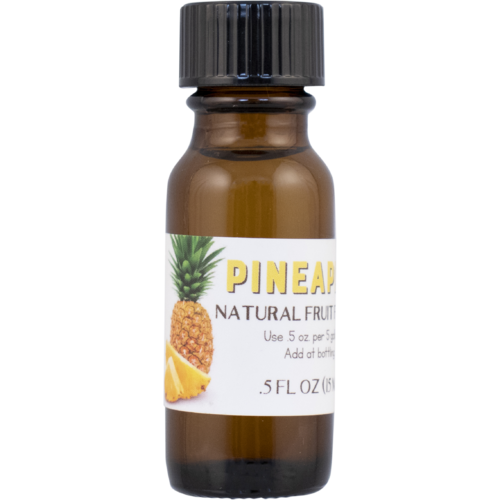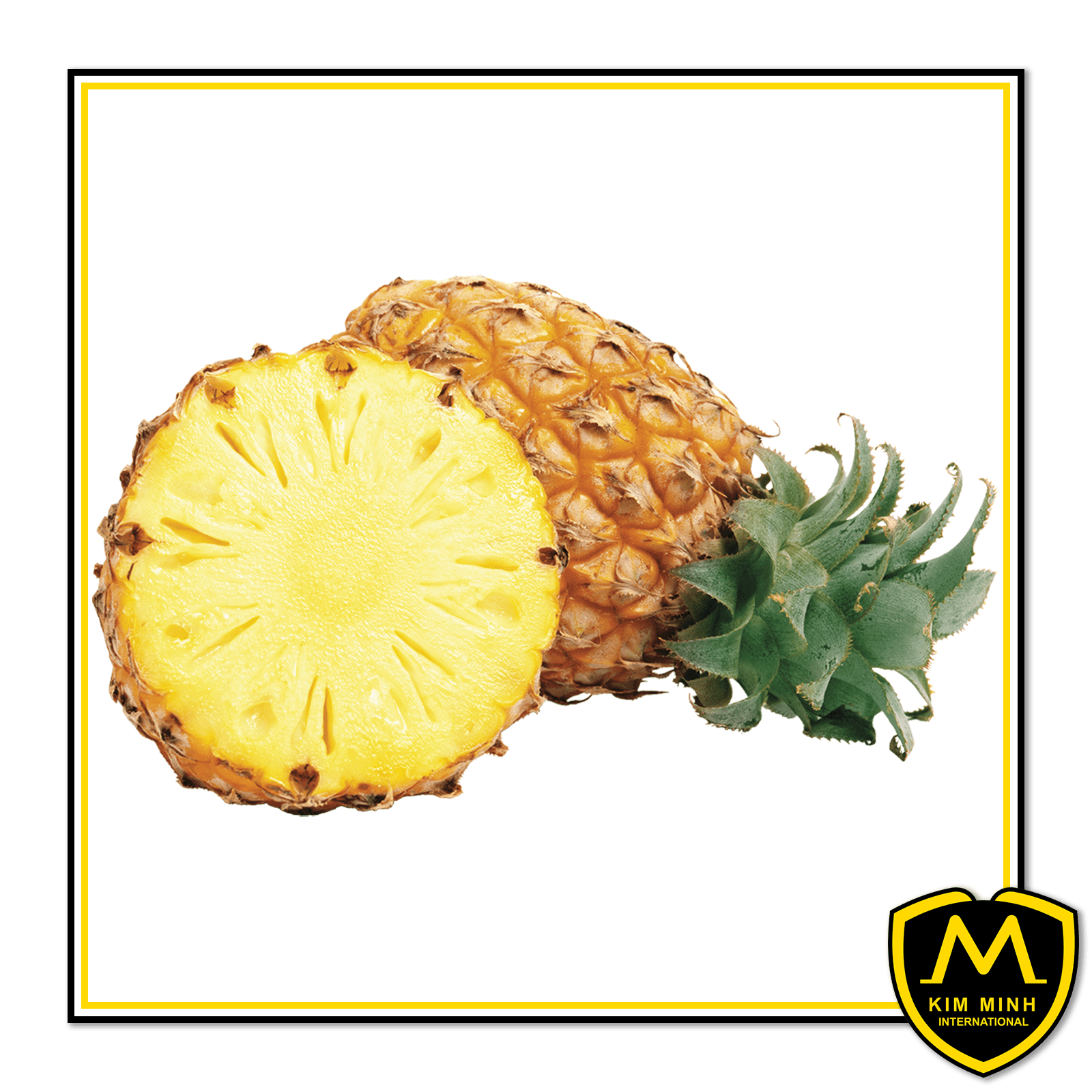Is Pineapple A Natural Fruit? Discovering The Origins And Fascinating Facts
Have you ever wondered if pineapple is a natural fruit or a creation of modern agricultural science? Pineapple, a tropical fruit with a unique taste and appearance, has sparked curiosity among fruit enthusiasts and scientists alike. Its juicy sweetness and tangy flavor make it a favorite in cuisines worldwide. However, the question of whether pineapple is truly a natural fruit remains a topic of interest for many.
Pineapple's exotic nature and vibrant yellow flesh have made it a staple in tropical dishes and beverages. Despite its popularity, some people question its origins, believing it might be genetically modified or artificially created. In this article, we will explore the history, science, and facts surrounding pineapples to answer the question: Is pineapple a natural fruit?
This article aims to provide a comprehensive understanding of pineapples, their natural origins, and their significance in global agriculture. By examining scientific research and historical records, we will uncover the truth about this beloved tropical fruit.
Read also:Chris Browns Kids 2024 A Comprehensive Look At His Family Life
Table of Contents
- The Origin of Pineapple: A Natural Wonder
- Pineapple Biology: Understanding the Natural Structure
- Historical Journey: Pineapple's Natural Roots
- Pineapple Genetics: Is It Genetically Modified?
- Health Benefits of Pineapple: Nature's Gift
- Subtopic: Pineapple Varieties
- Subtopic: Pineapple Cultivation
- Subtopic: Pineapple in Global Trade
- Subtopic: Pineapple in Cuisine
- Conclusion: Is Pineapple Truly a Natural Fruit?
The Origin of Pineapple: A Natural Wonder
Pineapple, scientifically known as Ananas comosus, is indeed a natural fruit with a rich history that dates back centuries. Native to South America, specifically the region between southern Brazil and Paraguay, pineapples have been cultivated by indigenous peoples long before European explorers discovered them. The fruit's natural origin is well-documented in historical records and botanical studies.
One of the earliest records of pineapple cultivation comes from the Guarani people, who domesticated the fruit for its nutritional value and medicinal properties. The fruit was later introduced to Europe by Christopher Columbus in 1493, who brought it back from the Caribbean islands. This marked the beginning of pineapple's global journey as a natural and exotic fruit.
Pineapple Biology: Understanding the Natural Structure
From a biological perspective, pineapple is a natural fruit that belongs to the Bromeliaceae family. Its unique structure consists of multiple fruitlets that fuse together to form a single, large fruit. This natural process, known as synconia, is a hallmark of pineapple's growth and development.
Key features of pineapple's natural biology include:
- Multiple fruitlets that merge into a single fruit
- A crown of spiky leaves at the top, which is a natural part of the plant
- Rich in natural enzymes like bromelain, which aids digestion
Understanding the biological makeup of pineapple reinforces its status as a natural fruit with unique characteristics.
Historical Journey: Pineapple's Natural Roots
The historical journey of pineapple highlights its natural origins and global significance. From its native lands in South America to its widespread cultivation in tropical regions worldwide, pineapple has maintained its natural identity throughout history. Historical documents and botanical research confirm that pineapple has always been a naturally occurring fruit, with no evidence of artificial creation.
Read also:Comprehensive Guide To Meijer Store Locations In Ohio
During the 16th century, pineapple cultivation spread to Asia, Africa, and the Pacific Islands, thanks to European explorers and traders. Its natural adaptability to tropical climates made it a popular crop in these regions. Today, countries like Costa Rica, Philippines, and Thailand are among the top pineapple producers, continuing the legacy of this natural fruit.
Pineapple Genetics: Is It Genetically Modified?
One of the most common questions about pineapple is whether it has been genetically modified. The answer is no—pineapple remains a natural fruit with no genetic modifications. While modern agriculture has developed hybrid varieties to enhance yield and disease resistance, these are natural crossbreeding processes rather than genetic engineering.
According to a study published in the journal Nature Genetics, pineapple's genome has been sequenced to understand its natural genetic traits. This research confirms that pineapple retains its natural genetic makeup, with no evidence of artificial modifications.
Health Benefits of Pineapple: Nature's Gift
Pineapple is not only a natural fruit but also a powerhouse of nutrients and health benefits. Its natural composition includes essential vitamins, minerals, and enzymes that contribute to overall well-being. Here are some key health benefits of pineapple:
- Rich in Vitamin C, boosting the immune system
- Contains bromelain, an enzyme that aids digestion and reduces inflammation
- High in manganese, supporting bone health
- Low in calories, making it an ideal choice for weight management
These natural properties make pineapple a valuable addition to a healthy diet, further emphasizing its status as a natural fruit with numerous benefits.
Subtopic: Pineapple Varieties
Pineapple comes in various natural varieties, each with its unique taste, texture, and appearance. Some of the most popular pineapple varieties include:
- Smooth Cayenne: Known for its sweet and juicy flesh
- Red Spanish: Characterized by its firm texture and mild flavor
- Queen: A smaller variety with a rich, aromatic taste
- Golden Supreme: Known for its exceptionally sweet flavor
These natural varieties cater to different tastes and preferences, showcasing the diversity of pineapple as a natural fruit.
Subtopic: Pineapple Cultivation
Pineapple cultivation is a natural process that requires specific tropical conditions. The fruit thrives in warm climates with well-drained soil and adequate sunlight. Farmers often rely on traditional methods to cultivate pineapple, ensuring its natural growth and development.
Key factors for successful pineapple cultivation include:
- Optimal temperature range of 68°F to 86°F (20°C to 30°C)
- Well-drained sandy loam soil
- Regular watering during dry periods
These natural conditions ensure that pineapple maintains its quality and nutritional value.
Subtopic: Pineapple in Global Trade
Pineapple plays a significant role in global trade, with millions of tons produced and exported annually. Major pineapple-producing countries include Costa Rica, Philippines, and Brazil, which contribute to the global supply of this natural fruit. The international trade of pineapple supports economies and provides access to this tropical delight worldwide.
According to the Food and Agriculture Organization (FAO), global pineapple production reached 28.4 million metric tons in 2020, highlighting its importance as a natural and commercially viable fruit.
Subtopic: Pineapple in Cuisine
Pineapple's natural sweetness and tangy flavor make it a versatile ingredient in various cuisines. From savory dishes to refreshing desserts, pineapple adds a unique touch to culinary creations. Popular pineapple-based dishes include:
- Pineapple pizza (Hawaiian pizza)
- Pineapple upside-down cake
- Fruit salads and smoothies
- Pineapple salsas and chutneys
These natural recipes celebrate pineapple's versatility and appeal in global cuisine.
Conclusion: Is Pineapple Truly a Natural Fruit?
In conclusion, pineapple is indeed a natural fruit with a rich history and scientific backing. Its origins in South America, natural biological structure, and absence of genetic modifications confirm its status as a naturally occurring fruit. Pineapple's health benefits, cultivation practices, and global significance further reinforce its importance in agriculture and cuisine.
We invite you to share your thoughts and experiences with pineapple in the comments below. If you enjoyed this article, please consider sharing it with your friends and family. For more fascinating insights into the world of fruits and nature, explore our other articles on the website. Together, let's celebrate the wonders of natural fruits like pineapple!


